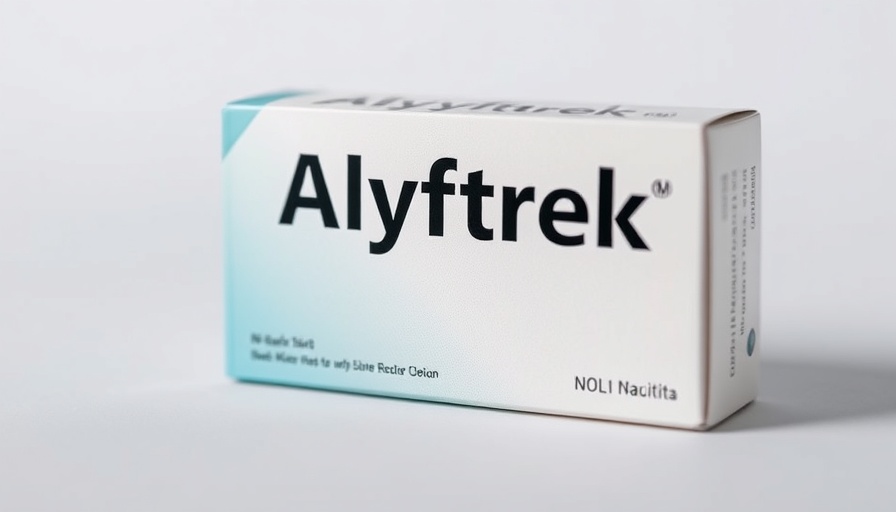
Positive Developments for Cystic Fibrosis and Amyloidosis Patients
In a significant advancement for patients suffering from cystic fibrosis (CF) and hereditary transthyretin (TTR)-mediated amyloidosis, the European Medicines Agency (EMA) recently recommended approval of two new orphan drugs. These treatments are crucial as they offer hope for improved quality of life and disease management in these underserved populations.
Revolutionary Treatments on the Horizon
The EMA's nod to Alyftrek, a combination therapy by Vertex Pharmaceuticals, aims to change the lives of patients aged six and older with at least one F508del mutation in the CFTR gene. This combination medicine, consisting of deutivacaftor, tezacaftor, and vanzacaftor, works synergistically to restore functionality to the CFTR protein, which plays a crucial role in maintaining healthy lung function.
Clinical trials demonstrated that Alyftrek significantly improved lung performance—offering a lifeline for many who were previously reliant on inhalers and other therapies for symptom relief. The dual approach of targeting different sites on the CFTR protein enhances its efficacy compared to existing treatments like Kaftrio, making this innovation noteworthy in the fight against cystic fibrosis.
A Breakthrough for Amyloidosis
Meanwhile, Attrogy has emerged as a beacon of hope for those dealing with hereditary TTR-mediated amyloidosis. This condition, characterized by gradual nerve damage and organ dysfunction, has long been a challenge for patients. The drug, which stabilizes the TTR tetramer, aims to counteract disease progression effectively.
In clinical trials, Attrogy delayed degeneration as assessed by the Neuropathy Impairment Score plus 7 nerve tests (NIS + 7), showcasing its potential to transform standard care for patients. By addressing both the symptoms and underlying causes of the disease, Attrogy represents a significant stride forward in patient-centric care.
Understanding Orphan Drug Designation
Both Alyftrek and Attrogy received orphan drug designation, which is a recognition intended to stimulate research and development in areas with limited therapeutic options. The implications of approval extend beyond just new medications; they signify a strong commitment to prioritize and uplift patients battling rare diseases.
Next Steps and Future Implications
As the EMA prepares to finalize marketing authorizations, healthcare professionals and patients are urged to stay informed about the potential side effects and monitoring requirements that accompany these medications. With ongoing studies and clinical data collection, these drugs will not only enrich therapeutic options but could also pave the way for future medical innovations in rare disease treatments.
Community Impact and Patient Empowerment
For suburban professionals between 25-50 years, particularly those with loved ones diagnosed with CF or amyloidosis, the news of these drugs represents not just medical progress, but also a step toward empowerment. Increased awareness and advocacy can lead to better understanding and accessibility of treatment options.
The broader health community is encouraged to advocate for improvements in medical research funding, which can drive the development of more orphan drugs. Staying informed about the latest medical trends is essential, as it not only advocates for personal health but also supports a larger conversation around wellness for all.
In closing, the approval of Alyftrek and Attrogy heralds a new era of hope for patients facing challenges from cystic fibrosis and hereditary amyloidosis. As these treatments gain approval, and ultimately begin to reach patients, the optimism surrounding health and wellness continues to grow.
For healthcare professionals and patients alike, keeping abreast of these advancements is essential. By understanding how these drugs will impact treatment protocols, individuals can make informed decisions that enhance their or their family member's well-being.
 Add Row
Add Row  Add
Add 




 Add Row
Add Row  Add
Add 

Write A Comment